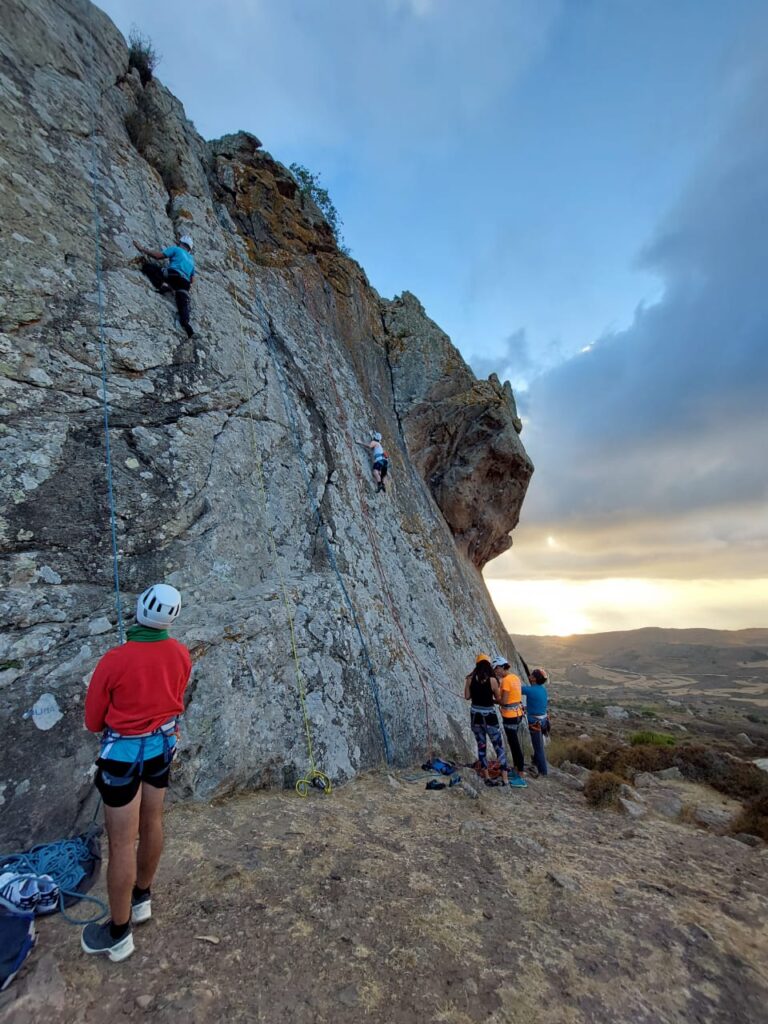
The rock climbing workshop aims to introduce participants to the sport of rock climbing while promoting sustainable practices in mountain environments. This workshop brings together climbers of all skill levels in a collaborative setting that emphasizes respect for natural landscapes and teaches participants how to minimize their impact while engaging in mountain activities.
Objectives:
- To develop climbing skills among participants
- To promote sustainable mountain practices by educating climbers on low-impact techniques
- To cultivate a community of responsible climbers committed to preserving the mountain ecosystem
Description of the Practice:
The rock climbing workshops consist of two parts. First, participants take part in lessons where instructors provide practical advice on reducing their environmental footprint: they emphasize the importance of using designated paths, avoiding damage to vegetation, and maintaining cleanliness. Participants learn about the ecological significance of mountain ecosystems, understanding how each individual can contribute to their preservation. With this knowledge, participants proceed to the second part of the workshop, which includes practical climbing sessions. These are led by certified climbing instructors and cover key skills, such as safe climbing practices and equipment handling.
Impact and Results:
The workshops encouraged people with no prior mountain climbing experience to try a new sport. A large number of participants reported that the workshops increased their awareness of responsible outdoor practices. By combining practical climbing instruction with lessons on environmental responsibility, the workshops effectively instilled sustainable values in participants, many of whom continue to apply these practices in future outdoor activities.
Challenges and Solutions:
A primary challenge was ensuring that climbers consistently adhere to sustainability guidelines. AZO addressed this by embedding eco-friendly practices directly into the climbing instruction and providing easy-to-remember guidelines on minimizing environmental impact. Instructors also regularly reminded participants about sustainable behaviors, reinforcing these habits in a real-world setting.
Can it be repeated?
The workshop is highly adaptable to other mountain or natural climbing areas. With minimal resources required, it can be implemented in various locations, particularly those seeking to promote responsible outdoor recreation.
Conclusion:
The rock climbing workshop represents a best practice in using outdoor sports to promote sustainable engagement with natural areas. By educating participants on responsible mountain practices, the workshop builds a community that values and protects mountain ecosystems.
Recommendations:
Future workshops could benefit from increased partnerships with local conservation groups to deepen participants’ understanding of specific mountain ecosystems and their vulnerabilities.
 .
. 
